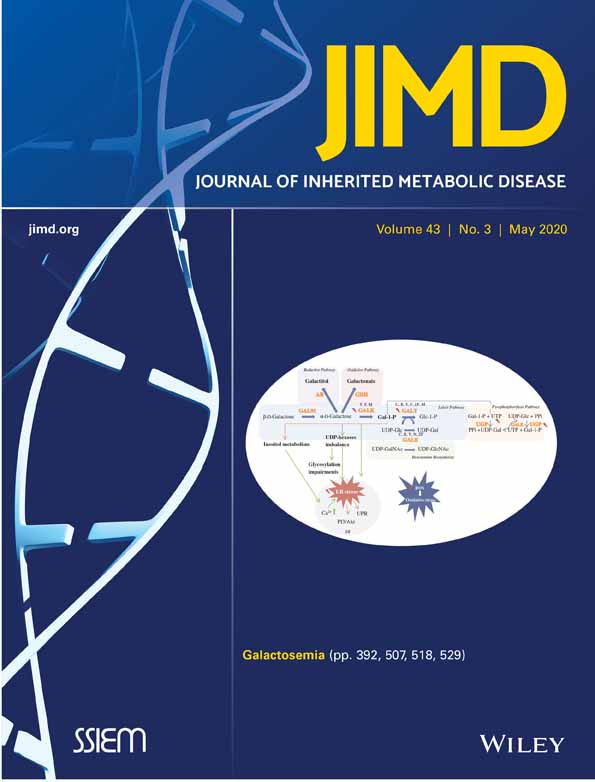Slc22a5 haploinsufficiency does not aggravate the phenotype of the long-chain acyl-CoA dehydrogenase KO mouse
Funding information: National Institute of Diabetes and Digestive and Kidney Diseases, Grant/Award Number: R01DK113172
Abstract
Secondary carnitine deficiency is commonly observed in inherited metabolic diseases characterised by the accumulation of acylcarnitines such as mitochondrial fatty acid oxidation (FAO) disorders. It is currently unclear if carnitine deficiency and/or acylcarnitine accumulation play a role in the pathophysiology of FAO disorders. The long-chain acyl-CoA dehydrogenase (LCAD) KO mouse is a model for long-chain FAO disorders and is characterised by decreased levels of tissue and plasma free carnitine. Tissue levels of carnitine are controlled by SLC22A5, the plasmalemmal carnitine transporter. Here, we have further decreased carnitine availability in the LCAD KO mouse through a genetic intervention by introducing one defective Slc22a5 allele (jvs). Slc22a5 haploinsufficiency decreased free carnitine levels in liver, kidney, and heart of LCAD KO animals. The resulting decrease in the tissue long-chain acylcarnitines levels had a similar magnitude as the decrease in free carnitine. Levels of cardiac deoxycarnitine, a carnitine biosynthesis intermediate, were elevated due to Slc22a5 haploinsufficiency in LCAD KO mice. A similar increase in heart and muscle deoxycarnitine was observed in an independent experiment using Slc22a5jvs/jvs mice. Cardiac hypertrophy, fasting-induced hypoglycemia and increased liver weight, the major phenotypes of the LCAD KO mouse, were not affected by Slc22a5 haploinsufficiency. This may suggest that secondary carnitine deficiency does not play a major role in the pathophysiology of these phenotypes. Similarly, our data do not support a major role for toxicity of long-chain acylcarnitines in the phenotype of the LCAD KO mouse.
CONFLICT OF INTERESTS
Sander Houten has received a reimbursement for attending a symposium from Alfasigma Nederland BV.




